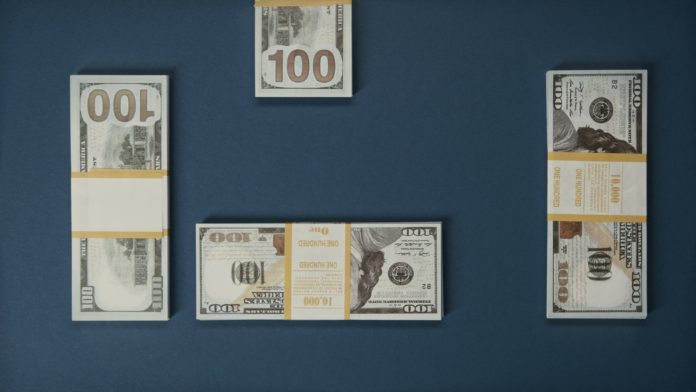
Imagine a world where the maximum amount of money and wealth anyone on Earth can have is capped at 100 million dollars. What would change in that kind of world? How would that world function? Would it be better, or would it collapse? Those are all questions I will try to answer in this post.
This subject concerned me for quite some time. Constantly in today’s world, we are bombarded with news about the success of multi-billionaires. They are modern-day heroes, they know everything, they are someone modern generations should look up to, and they are represented (in many cases) as saviors of the world.
But should they be celebrated like that? Are they really modern-day heroes, or are they just hungry for more money and more power? And would they still be like that if they couldn’t earn more than 100 million dollars at any point in time? What would then drive them?
Wealth has always been something everyone desires. From ancient times to today, the wealthiest people always had significant power, and they always wanted even more.
No society in history made a conscious decision to set up a limit on maximum wealth per person. Ok, to be fair, there is a maximum wage limit in Cuba currently, but that’s another story with a completely different implementation.
So, let’s think about what would happen in that scenario of limited wealth around the world. Say someone earns 100 million dollars and then he/she receives a phone call from the Ministry of Wealth Control (MWC), and they say:
“Congratulations, you won The Game of Capitalism. You’ll get a winning plate, and everything you earn from now on will go to charity.”
– Day 1 of limit law. Nothing happens except the media goes to outrage. Stocks fall worldwide.
– On day 2, the news really struck down, especially on wealthy people. Many standard people look positive at the news, but they are worried about what will happen.
– Day 10 – news is bombarded every day with newly introduced law, and social unrest can be seen worldwide.
Consequences?

For now, let’s stop with day-by-day counting. However, the potential consequences could be seen clearly. Namely, in the current world, limiting wealth would probably not result in a positive situation.
This change would probably result in positive progress in the world in the long term; however, with the current establishment, so many billionaires, and twisted definition of value and progress in society, the decision to limit individual wealth would conclude with unimaginable negative results (see also post about negative results of social media) for many years.
In 100 years, society would perhaps be better; however, for 1st generation, it would be devastating. Why devastating, one could ask? Well, because society as a whole and its values need to change completely to adopt the limited wealth idea.
Basically, the whole generation (and probably more) is needed to conclude its chapter before you can introduce a new set of values, even if you are changing only one thing (but an important one) such as the amount of money any individual can have.
Having said that, let’s try to imagine what would happen in different industries and in people’s lives.
Tech Industry

I would say that this is a category that would probably be highly impacted. Namely, we could expect many newer things that keep coming out, such as new smartphones, new tablets, and new devices, to dry up and slow down considerably. This is a rather fast industry, and while there are, of course, many people in the industry doing things for a better world, many are also there only for the money.
So, if society put a cap on that money, well, then probably not so many hours would be spent on managing those businesses and inventing new things. Now, don’t get me wrong, it would not happen in every company, but let’s be realistic; many people are driven only by money, and they would not do the same thing if money was capped. Say that owner of a big IT company reaches 100M$ and he/she/they cannot earn anymore.
Would they still pursue the same “rat race,” or would they settle down and spend time on perhaps more meaningful things like traveling the world, spending time in nature and with their family, and helping people in need? No one knows but looking at the current society, I would say that after the introduction of the limit law, in the first 100 years, a significant delay in the production of technology goods would probably happen.
And maybe that would be a good thing for society. As one smart person once said, “People need to be wise enough to decide not to make some technological progress or product even though they have knowledge and ability to do so.” A lot of people are now saying that social networks are destroying the sole fabric of society as we know it.
And there are many such examples. Do you think those products would be built if their CEOs, early investors, and many others were limited to how much they could gain for supporting or inventing them?
Probably not, but time will tell.
Food Industry

Innovation and the extreme wealth of individuals in the food industry are not as common as in the tech industry, and thus, I would say changes would not be as dramatic.
Food would still be produced; however, probably the biggest food producers would reduce their processing plants significantly. This would probably result in an additional number of smaller food producers, which is for sure a good thing.
Education

There aren’t many billionaires in the education industry; however, there are some. Bertil Hult, the 75-year-old founder of EF Education First, is worth $5 billion and is among the world’s richest college dropouts. He founded his business, which originally focused on organizing summer trips to the UK so his fellow Swedish students could learn English in the basement of his dorm (apparently). Sunny Varkey is another billionaire in education.
He is worth $2 billion, and he founded GEMS Education. According to Forbes, the company operates 50 private K-12 schools enrolling around 140,000 students worldwide, with its first U.S. school located in Chicago.
There are only a few more billionaires in education, but I will not comment on all of them as it is not so important for the topic. Namely, one can conclude that education would not be changed much if the wealth limit rule was enforced.
One thing that would change for sure is the education curriculum in some way since ultra-wealthy individuals influence education from early times. One good example of that is John D. Rockefeller. Basically, he influenced many categories in the education system by enforcing learning programs where he could benefit from thousands of “educated” learners for his factories and industries.
One could say that this kind of educational system was designed to keep us uneducated and docile. This is another topic, but it is related to this one because if the wealth limit was enforced, then we wouldn’t have those uber-wealthy people who have so much power that they can influence the education systems.
Auto Industry

Oh well, here we could expect a lot of changes when the wealth limit system is introduced. Namely, in the car industry, there are a significant amount of very wealthy people who are shaping the industry. Let’s just name a few.
Did you know that siblings Susanne Klatten and Stefan Quandt own almost half of BMW? Susanne Hanna Ursula Klatten is a German billionaire heiress, and her net worth is estimated at 23.2 billion US dollars, ranking her the richest woman in Germany and the 50th richest person in the world, according to Forbes.
Siblings are descendants of Guenther Quandt, who built a German industrial empire by, among other things, supplying weapons to the Nazis during World War II. In the years since the family has secured stakes in both Daimler-Benz AG and BMW.
Also, did you know that Bill Gates can also be on this list? How? Well, everybody knows that he is a billionaire, but rare people know that he also invested a good amount of money in AutoNation Inc., and his stake is worth around 1 billion dollars.
Then, of course, we have Elon Musk, with his huge wealth coming from Tesla. And there are many, many other billionaires and multi-hundred millionaires either directly or indirectly (via stock ownership or similar) tied to the automotive industry.
One can only assume what would happen with all those innovations and products that are coming from the automotive industry if there wasn’t the possibility to earn colossal wealth. Would Tesla exist now, would we have an electric car renaissance? Well, no one knows, but I would say progress in the industry would follow a different stream than it is now.
Real-estate

This is a rather specific industry in a way that there is a huge number of local ‘bosses’ who are earning a significant amount of money by building apartments and then lending or selling them. However, many of those people have wealth way below 100 million of our imaginative limit, so things would not change for the majority.
However, luxurious buildings, huge business offices, and the hotel industry would change for sure as there are a pretty good amount of ultra-rich (over 100 million $) people concerned about their wealth in this segment. Some of the huge international hotels would probably change significantly or even close down. On the positive side, perhaps the prices of some apartments would go down because there would be fewer greedy billionaires.
Oil & Gas industry

Hm… I think there’s no need to spend sentences here as we all know how many billionaires (and perhaps trillionaires) there are in Oil & Gas industry.
This industry simply cannot exist without oligarchs from different continents. Enough said. Any speculation of what would happen if their wealth was limited to 100 million dollars could end up in writing stories about the war.
Pharmaceutical Industry

In these times (i.e., coronavirus times and Pharma Gods), similar things would happen as described in the previous paragraph regarding Oil & Gas industry. Somewhat hard to speculate. Perhaps pharma drugs would not be developed, and perhaps we would have (almost) free mushrooms in local pharmacy.
In my opinion, in this industry, there shouldn’t be anyone earning vast amounts of money, and that drugs that really help human life should be made available for everyone relatively cheap.
Final Words

In the end, we can for sure conclude that limited wealth for individuals would include a huge number of changes in society and in different industries. Those changes would for sure (at least in the beginning) decrease the number of innovations in many industries.
For ordinary people, many things would probably stay the same or maybe even improve. Because let’s face it – we don’t need huge amounts of new products which are being introduced to the market every day, solely because new products bring massive revenue to companies and their owners.
However, in my humble opinion, after a couple of decades, society would change for the better, and money streams would turn into more compassion between people and not into more greed as it is currently in many situations.



























